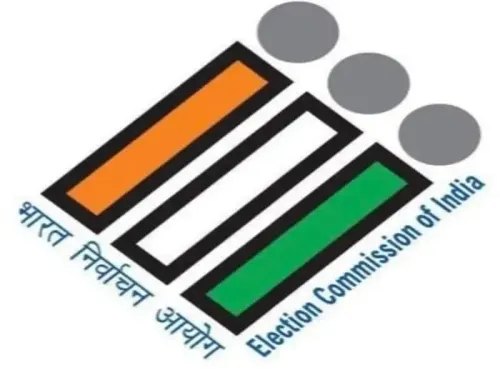Is CCI Vital for Upholding Fair Market Practices?

Synopsis
Key Takeaways
- CCI's role is crucial in maintaining market competition.
- Free markets empower consumers and enhance choice.
- Innovation thrives in competitive environments.
- New challenges like AI demand agile regulations.
- Streamlined merger processes aim to boost economic growth.
New Delhi, May 20 (NationPress) The establishment of free and fair markets is not only an economic necessity but also a fundamental aspect of democracy, and the Competition Commission of India (CCI) is pivotal in this regard, ensuring that competition thrives in the marketplace, stated Union Finance Minister Nirmala Sitharaman on Tuesday.
During her address at the 16th 'Annual Day Celebrations' of the market watchdog, FM Sitharaman elaborated that competition fosters efficiency, spurs innovation, and ultimately benefits consumers.
She remarked, "For innovation, competition serves as a relentless motivator. In a monopolistic setting, there is little drive to progress. However, competition instills a sense of urgency, compelling organizations to innovate in areas such as technology, design, service, and delivery."
The minister emphasized that free and fair markets prevent any single entity from monopolizing resources, restricting choices, or distorting price discovery.
"This is advantageous for our consumers," she pointed out.
The introduction of the Competition Act in 2002 marked a significant milestone in India's transition from a centrally planned economy to a market-oriented one, with the CCI evolving into a crucial body that upholds the principles of liberalization while curbing its excesses.
FM Sitharaman outlined the CCI's threefold mandate under the Competition Act: to promote and sustain market competition, to safeguard consumer interests and ensure trade freedom, and to prevent practices that adversely affect competition.
In today's interconnected global economy, delays in regulatory approvals can create uncertainty, disrupt business timelines, and potentially diminish the anticipated value of transactions.
"Thus, it is crucial for regulatory frameworks to maintain stringent oversight while enabling swift and seamless approvals for combinations that do not harm competition," she stressed.
Alongside traditional challenges, recent years have introduced new complexities.
Technologies like Artificial Intelligence present fresh challenges regarding market dominance, transparency, data accessibility, algorithmic biases, and competitive harm potential.
"The emergence of gatekeeper platforms, data access asymmetries, and the global implications of digital business models pose challenges to free and fair digital markets. The rise of international digital monopolies necessitates global collaboration and flexible regulation," the minister noted.
India's ongoing structural reforms—including asset monetization, disinvestment, and developing digital public infrastructure—are all aimed at unlocking market potential and enhancing competition.
In this year's Union Budget, I highlighted the need for a regulatory framework that is light-touch, principle-based, and built on trust to boost productivity and employment. Likewise, regulators should adhere to the principle of 'minimum necessary, maximum feasible' to achieve a balance between vigilance and a pro-growth approach," emphasized the Finance Minister.
The government has also announced plans to streamline the requirements and procedures for expedited approval of company mergers, expand opportunities for fast-track mergers, and simplify the overall process.










